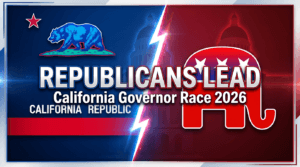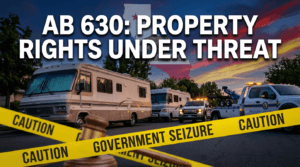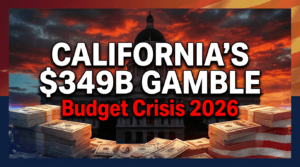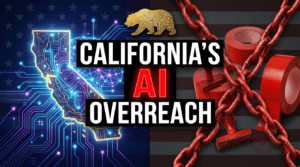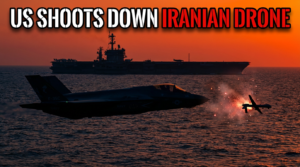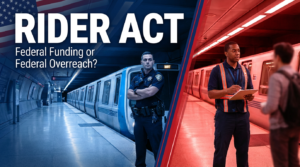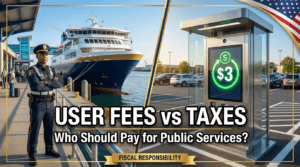A City on Edge: Los Angeles Erupts in Protest Over Immigration Raids, Clashes with Authorities, and National Guard Deployment
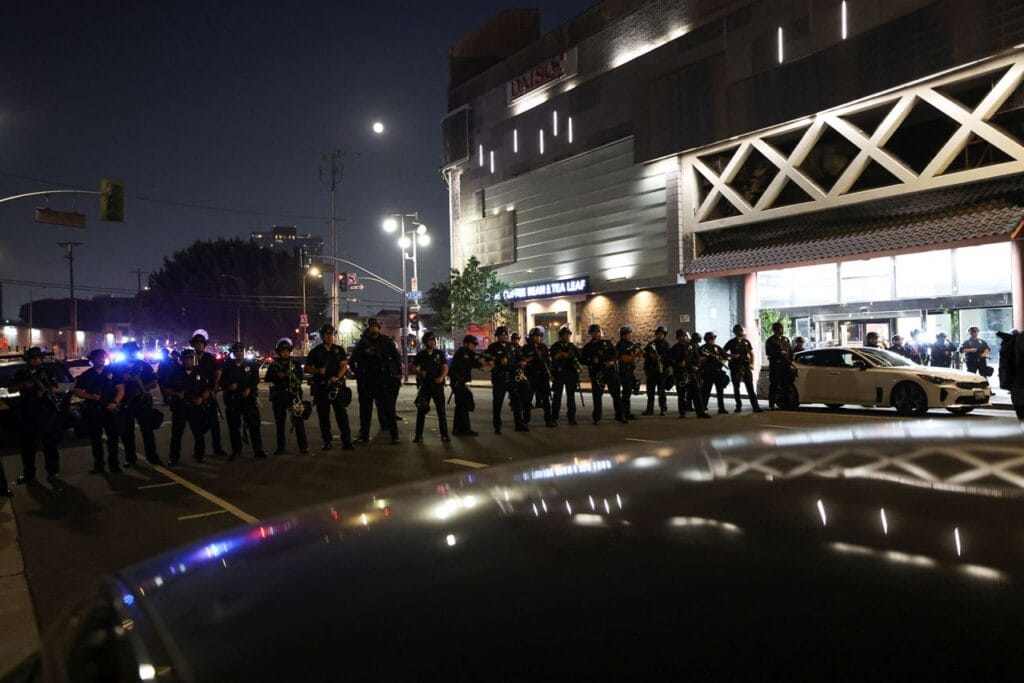
Law enforcement officers stand guard during a protest against federal immigration in downtown Los Angeles, California, on Monday. Aude Guerrucci/Reuters
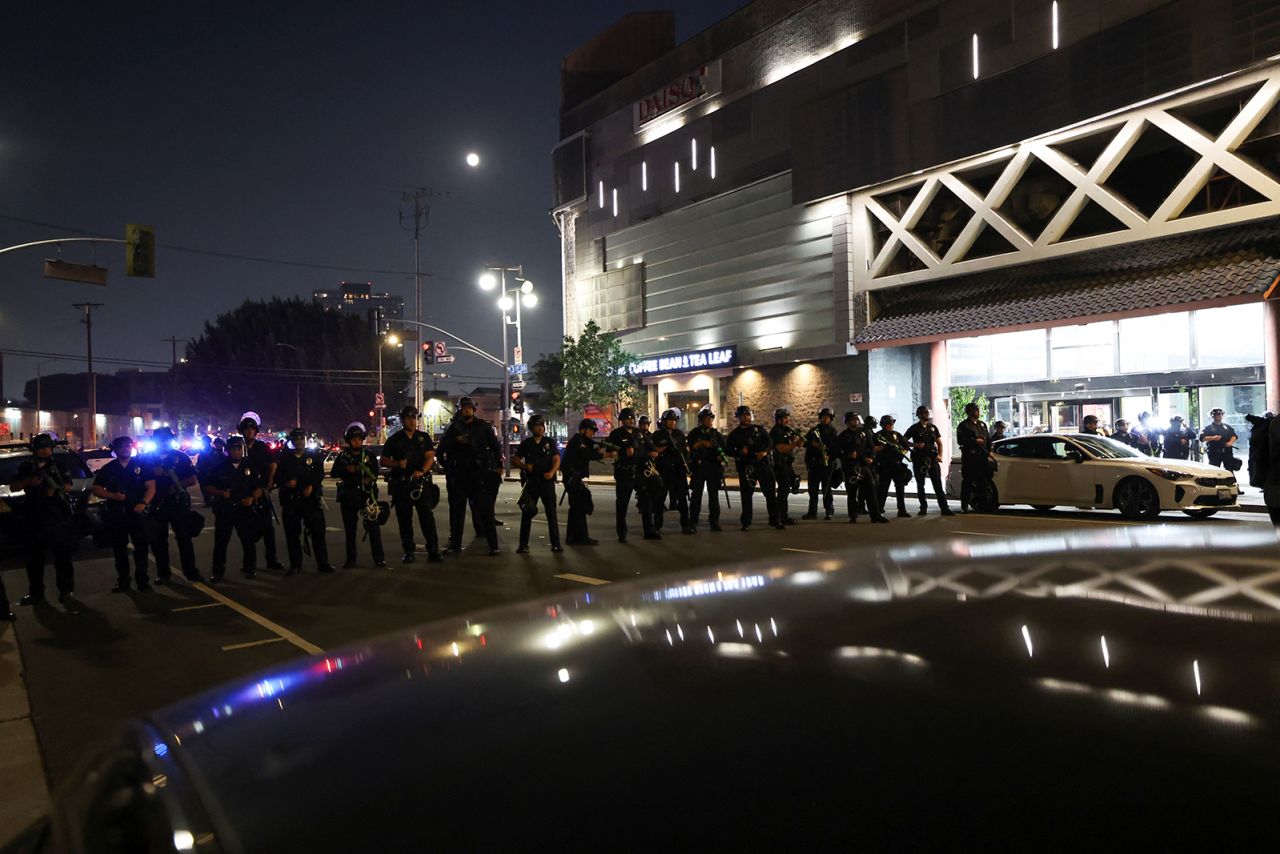
Los Angeles, CA – A tense and volatile atmosphere has gripped Los Angeles following a weekend of widespread protests and civil unrest sparked by a series of federal immigration raids. What began as demonstrations against the detainment of over 100 individuals, including a prominent labor leader, quickly escalated into fiery confrontations with law enforcement, the destruction of property, and a contentious deployment of the National Guard, turning the city into a focal point of the nation’s heated immigration debate.
The Spark: Federal Immigration Raids Ignite Citywide Protests
The turmoil began on Friday, June 7th, when federal agents from Immigration and Customs Enforcement (ICE), reportedly in conjunction with other federal agencies like the FBI and ATF, conducted a series of raids across the Los Angeles area. The operations targeted various locations, including a clothing warehouse in the Fashion District and several Home Depot parking lots, leading to the arrest of more than 100 people on alleged immigration violations.
Among those detained was David Huerta, the well-respected president of the Service Employees International Union (SEIU) California. His arrest, for what officials described as “interfering with federal officers,” acted as a significant catalyst, galvanizing a swift and powerful response from labor unions and civil rights organizations. “David Huerta is a respected leader, a patriot, and an advocate for working people,” Governor Gavin Newsom said in a statement. “No one should ever be harmed for witnessing government action.”
From Peaceful Dissent to Violent Confrontations: The Escalation of Unrest
By Friday evening, protests had erupted outside the Metropolitan Detention Center in downtown Los Angeles, where many of the detainees were believed to be held. The demonstrations, initially peaceful, grew in size and intensity throughout Saturday and Sunday. Chants of “Set them free!” and “ICE out of LA!” echoed through the streets as a diverse coalition of protestors, from lifelong activists to families of the detained, voiced their anger and fear.
“Our loved ones were kidnapped on Friday,” said Perla Rios, an Indigenous community leader, her voice trembling with emotion at a press conference. “These workers are heads of households, where they have left their families and loved ones to fend for themselves.” The personal stories of those affected painted a grim picture. “We never thought this would happen to us,” said 18-year-old Katia Garcia, a U.S. citizen whose undocumented father, Marco Garcia, had been in the country for 20 years. “The only crime he committed was trying to live a better life and trying to get ahead and work,” said another man who identified himself only as Carlos, speaking of his detained brother. “Because of that dream, I had to watch him get chained up like he was some kind of animal.”
Law Enforcement Responds: Clashes with Authorities and Mass Detainments
The weekend saw a dramatic escalation in tactics from both some protestors and law enforcement. On Saturday evening, and continuing through Sunday, pockets of the protests turned violent. Demonstrators threw water bottles, rocks, and chunks of concrete at police lines. In response, law enforcement deployed tear gas, rubber bullets, and flash-bang grenades to disperse the crowds. In some of the most dramatic scenes, several autonomous Waymo vehicles were set on fire, and the 101 Freeway was temporarily shut down by a human blockade.
The National Guard Takes the Streets: A Controversial Deployment
The escalating unrest prompted a highly controversial move from the White House. Citing the need to restore order, President Trump authorized the deployment of 2,000 National Guard troops to Los Angeles, a decision that was met with swift condemnation from state and local officials who argued it was an unnecessary and inflammatory overreach of federal power.
“I believe that these raids and now the federalization of troops to come into Los Angeles is an intentional effort to sow chaos,” said Los Angeles Mayor Karen Bass. “I do not want to see civil unrest take place in this city and I think bringing the National Guard in is provocative.” Governor Newsom echoed these sentiments, stating, “This is a serious breach of state sovereignty — inflaming tensions while pulling resources from where they’re actually needed.” He has since announced that the state of California will sue the Trump administration over the deployment.
Los Angeles Police Department Chief Michel Moore defended his department’s actions, stating that while the LAPD supports the right to peaceful assembly, “Those who choose to incite violence, engage in vandalism or graffiti, and/or attack officers will be arrested.” Over the course of the weekend, dozens of arrests were made on charges ranging from failure to disperse to assault on a police officer.
A City Divided: Political Fallout and Public Reaction
Civil rights organizations have fiercely condemned both the initial raids and the subsequent response. Amnesty International USA’s Executive Director, Paul O’Brien, stated, “This is not about protecting communities, this is about crushing dissent and instilling fear. Armed troops do not belong in our neighborhoods.” The Coalition for Humane Immigrant Rights (CHIRLA) and other groups are demanding a full investigation into the raids and the immediate release of all non-criminal individuals who were detained.
As of Monday morning, a fragile calm has returned to the streets of downtown Los Angeles, though the heavy presence of law enforcement serves as a constant reminder of the weekend’s turmoil. The events have laid bare the deep divisions and raw emotions surrounding immigration policy in the United States, leaving a city on edge and a nation watching to see what comes next.



